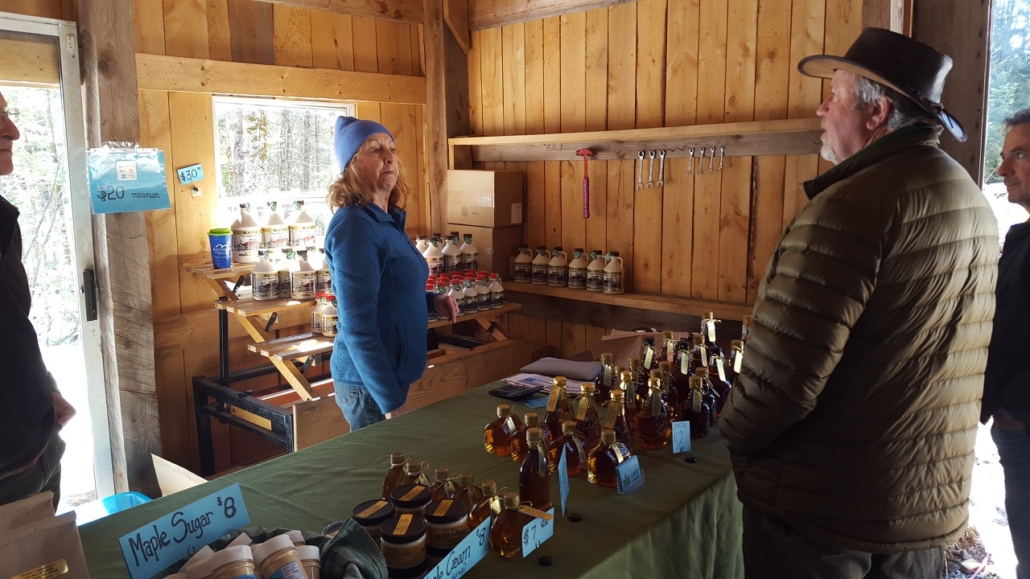Two TIF fund questions to be on warrant; assistant codes enforcement officer introduced
 by Mary Grow
by Mary Grow
After the April 6 town business meeting, China residents will vote again in June on a written-ballot warrant that already has two proposed articles.
At the April 1 selectmen’s meeting, Town Manager Dennis Heath presented two questions:
- To see if voters will authorize selectmen to spend $150,000 to buy the lot north of the Four Seasons Club on Lakeview Drive to provide public access to China Lake, with $125,000 to come from the lake access reserve fund and the remaining $25,000 from the TIF (Tax Increment Finance) fund.
- To see if voters will authorize selectmen to spend up to $25,000 from the town’s undesignated fund balance (surplus) for engineering plans for a new emergency services building on town-owned land on Lakeview Drive opposite the former Candlewood Camps. Voters approved up to $5,000 for preliminary studies in November 2018; Heath intends to have results on display at the April 6 business meeting.
Selectmen voted unanimously to put both proposals on a June ballot. Heath said the next day the budget committee will meet to review the questions at 6 p.m. Tuesday, April 9.
The manager introduced Matt Rewa, who was finishing his first day’s work as China’s assistant codes enforcement officer. Rewa will work with CEO Paul Mitnik through 2019 while taking courses needed for certification. The plan is that he will succeed Mitnik in 2020.
Heath reported that the state legislature rejected China’s bill that would have allowed towns to opt out of collecting personal property taxes. A Maine Revenue Service employee told him there is no enforcement mechanism if towns ignore the requirement, but Heath said he believes public officials must obey the law.
Some of the selectmen would like to continue to pursue the issue. Board Chairman Robert MacFarland proposed sending a draft petition to other Maine municipalities to try to build support.
Selectmen Jeffrey LaVerdiere and Donna Mills-Stevens, who run, respectively, a general store and a farm, said the personal property tax discourages businesses.
In other business April 1:
- Transfer Station Manager Tim Grotton said in addition to the drug take-back day, Saturday, April 27, will also be a day when the transfer station accepts discarded fluorescent light bulbs without charging a fee.
- Grotton also said the compost pile is ready for residents to help themselves.
- Selectman Irene Belanger said China’s public hearing on the 2019-2020 school budget will be at 7 p.m. Tuesday, April 30, at China Middle School. The annual vote on the school budget is scheduled for May 16 in Oakland, she said.
The next regular selectmen’s meeting will be Tuesday evening, April 16, because Monday, April 15, is a holiday. The town office will be closed April 15.








 Nomination papers are now available for Vassalboro’s June 11 local elections. One Selectboard member and two School Board members are to be elected. Terms ending in 2019 are those of Selectman Lauchlin Titus and School Board members Jessica Clark and Kevin Levasseur.
Nomination papers are now available for Vassalboro’s June 11 local elections. One Selectboard member and two School Board members are to be elected. Terms ending in 2019 are those of Selectman Lauchlin Titus and School Board members Jessica Clark and Kevin Levasseur.
 In Burlington, Vermont, Kaitlyn Sutter, of Palermo, along with 40 teams and over 700 participants, has helped the University of Vermont’s annual student-led fundraising event RALLYTHON raise a record-breaking $117,520.29 for the UVM Children’s Hospital.
In Burlington, Vermont, Kaitlyn Sutter, of Palermo, along with 40 teams and over 700 participants, has helped the University of Vermont’s annual student-led fundraising event RALLYTHON raise a record-breaking $117,520.29 for the UVM Children’s Hospital.